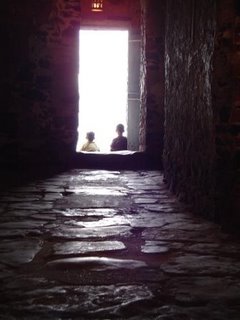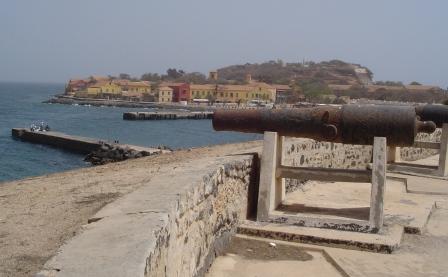A few weeks ago I read a National Geographic piece about slavery in the Americas. The article was written by a Jamaican-born historian called Colin Palmer, himself the descendent of Africans who were brought to the New World as slaves.
It was so refreshing to read an honest and objective account of slavery, one which was not laced with the usual hand-wringing self-loathing that usually afflicts many western authors when they write or talk about slavery.
Slavery, of course, was around a long time before ‘The West’ even existed. What distinguishes the west from the rest of the world is the fact that the elimination of slavery is a European and American achievement, and enduring objective. An enduring objective, because sadly, in many parts of the world, including Africa, forms of slavery are
still practiced.
But getting back to Palmer’s account, apparently, the first person of African descent to arrive in the Americas was a freeman working as a member of the crew of the ship captained by Christopher Columbus. That was in 1492.
Two more Africans arrived in 1494 on Columbus’s second expedition, and then in 1501, Ferdinand and Isabella of Spain granted permission for the import of black slaves to the Americas. And so began the horrific trans-Atlantic slave trade.
Of an estimated 10-12 million slaves, transported mainly by Europeans (Portuguese French, English, Dutch) across the Atlantic, around 95% of them were taken to the Caribbean and Latin America.
Only 500,000 slaves, less than 5% of the total, went to the American mainland north of Spanish Florida. Approximately 5 million slaves were brought to Brazil; 2 million to Spanish colonies; and more than 3 million to the British, French, Dutch and Danish colonies in the Caribbean.
For me, one of the most interesting aspects of Colin Palmer’s report was the description of how the slaves were actually acquired in order to be transported from Africa.
Elmina Castle and Cape Coast Castle, situated on the coast of modern-day Ghana, were two infamous departure points. In April 2005, while attending a seminar in Senegal, I was able to visit the island of Gorée, just off the coast of the capital city, Dakar. This island is another well-known location from where many slaves were shipped across the Atlantic. It was a harrowing, yet enlightening experience. Since then I had been wondering how it had been possible to assemble so many slaves together in one place. Palmer shed some light on my query.
Apparently the European traders paid rent to local leaders for the castles and forts along the West African coast, and there they waited while those with slaves to sell made their way from all over West Africa with their human merchandise.
According to Palmer, 80% of all slaves were captives taken in wars between rival tribes and states. One trader recorded “
most of the slaves that are offered to us are prisoners of war who are being sold as booty.” Other slaves were debtors and criminals, and some were abducted.
Only a small percentage of slaves were actually abducted, and going by what Marina and I learned on a visit to
Liverpool’s maritime museum in 2004, most of those slaves who were abducted, were seized by other Africans, Arab and Black, and then sold to the European traders along the coast. Muslim traders and African chiefs gained as much from the slave trade as the European traders.
When the facts about slavery are clearly presented they dispel many of the misconceptions and false impressions perpetuated by many school textbooks, articles on the subject and Hollywood productions like Alex Haley’s controversial and oftentimes imaginary ‘Roots’ series.
With the current tendency within many western educational establishments to blame all the world’s problems on ‘colonial’ westerners, I doubt if many people will ever get an accurate picture of what really happened during this sad period of African history.





